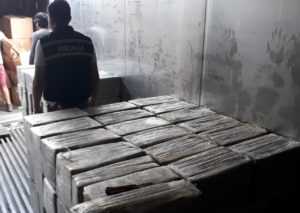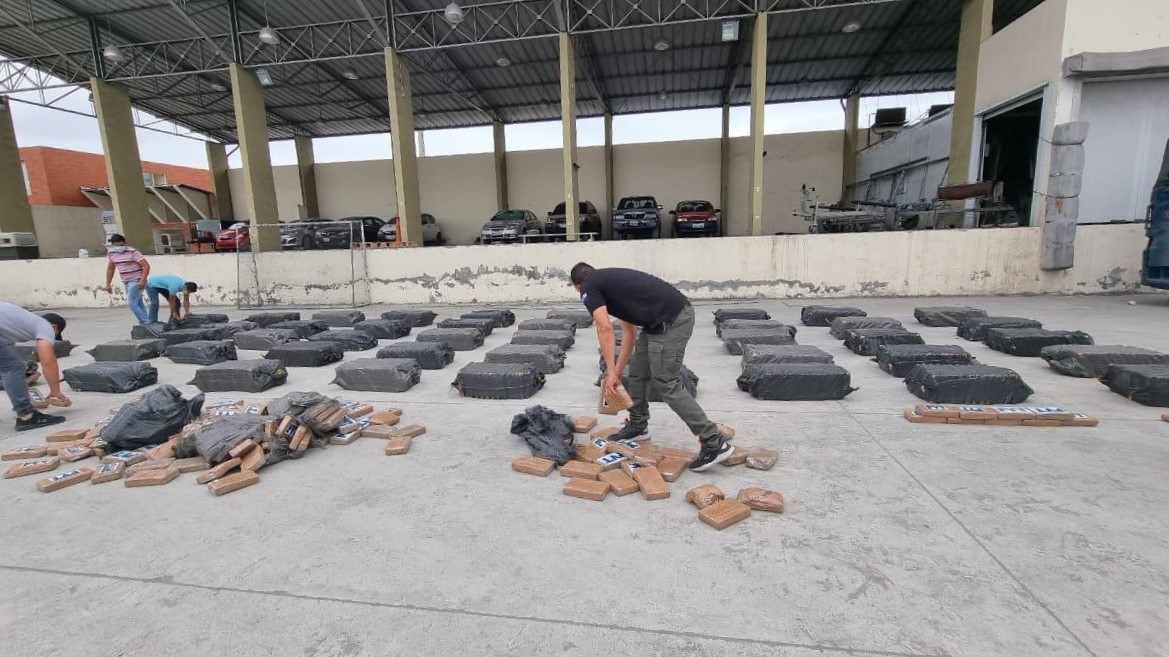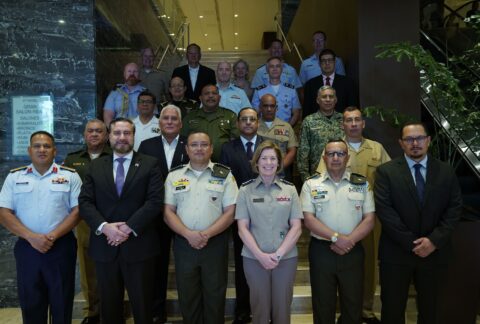In late July and early August, agents of the Ecuadorian National Police prevented the shipment of more than 4 tons of cocaine from the Guayaquil Maritime Port in two operations where authorities found the drug hidden among legal goods in containers bound for Europe.
On August 2, authorities found 2,123 kilograms of cocaine in a container with wood bound for Belgium, the Ecuadorian Police said on Twitter. That same day, agents also found a 27-kg load of cocaine inside refrigeration panels in another container, which was bound for Russia, the Ecuadorian newspaper El Universo reported.
According to Yury Narváez, head of the Ecuadorian Police Anti-drug Investigation Unit, Zone 8, the criminals used the so-called rip off method to contaminate the containers, which consists of opening the containers to hide the drug just when they are about to be loaded onto the ship.
“For this method to be carried out, the people involved in this illicit activity must necessarily be familiar with the operations in the Maritime Port,” Narváez told El Universo.

In another operation, on July 23, police agents and personnel of the Office of the Attorney General prevented 2 tons of cocaine from reaching the Maritime Port, where criminals intended to ship the drug abroad, the Office of the Attorney General said on Twitter. Agents found the drug while inspecting trucks in a loading area, in the city of Durán, Guayas province. Criminals had hidden the cocaine inside containers of frozen fish.
Cocaine seizures are frequent at the Guayaquil Maritime Port. In late June, the police seized 7.3 tons of cocaine, the largest seizure in Guayaquil in the last eight years, Tannya Varela, commanding general of the Ecuadorian Police, said. Agents found the drug in a shipment of canned tuna that was bound for Spain.
From January to early August, the Ecuadorian Police seized more than 80 tons of cocaine, El Comercio reported. Drug traffickers’ activities have caused violence in the south of Guayaquil and in Posorja parish, where the ports operate, indicated InSight Crime, an organization that analyzes transnational crime in Latin America. Guayaquil is considered a storage area and loading port for cocaine shipments coming from Colombian and Peruvian narcotrafficking cartels, the AP news agency reported on June 28.









